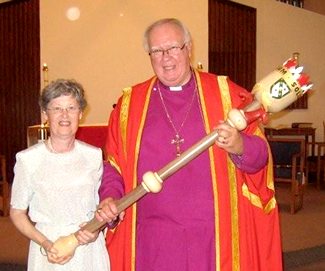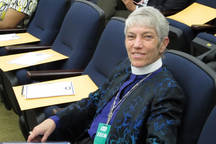It doesn’t take much to astound him, though, according to this letter to the Anglican Journal:
As a former member of the Anglican Consultative Council and of its standing committee, I am astounded to learn the standing committee actually voted on whether or not to dismiss The Episcopal Church from the Anglican Communion. I wonder where it imagines it has the authority to do this.
The Anglican Consultative Council, and obviously its standing committee, does not have legislative authority. It is, by definition, consultative, as is the Lambeth Conference and the meeting of Primates. That is the nature of the church.
We do not have a central supreme authority; we do not have a Curia. We have disagreements, but what binds us together is greater than things that could drive us apart. We do not always get our own way in debate; not everyone agrees with everyone else. We are not that kind of church.
What we do have is a community held together not by laws and government, but by those “bonds of affection” that have always been the basis of Anglicanism.
Archbishop Douglas Hambidge
Delta, B.C.
When Archbishop Hambidge intones, “[w]e do not have a central supreme authority”, he is not far from the mark. The Anglican Church of Canada recognises no central authority, including God’s as revealed in his Word. Instead it wafts along blown hither and thither by every gust of pagan superstition and cultural vice it encounters.
The “bonds of affection” between Anglicans has long gone, with the vast majority of worldwide Anglicans having declared themselves in impaired communion with both the ACoC and TEC. This probably doesn’t impinge much on Archbishop Hambidge’s equanimity, ensconced as he is in the insular, increasingly insignificant, neo-colonial, North American oddity that thinks it represents Anglican Christians in the West.
Like this:
Like Loading...




 for an archbishop.
for an archbishop.